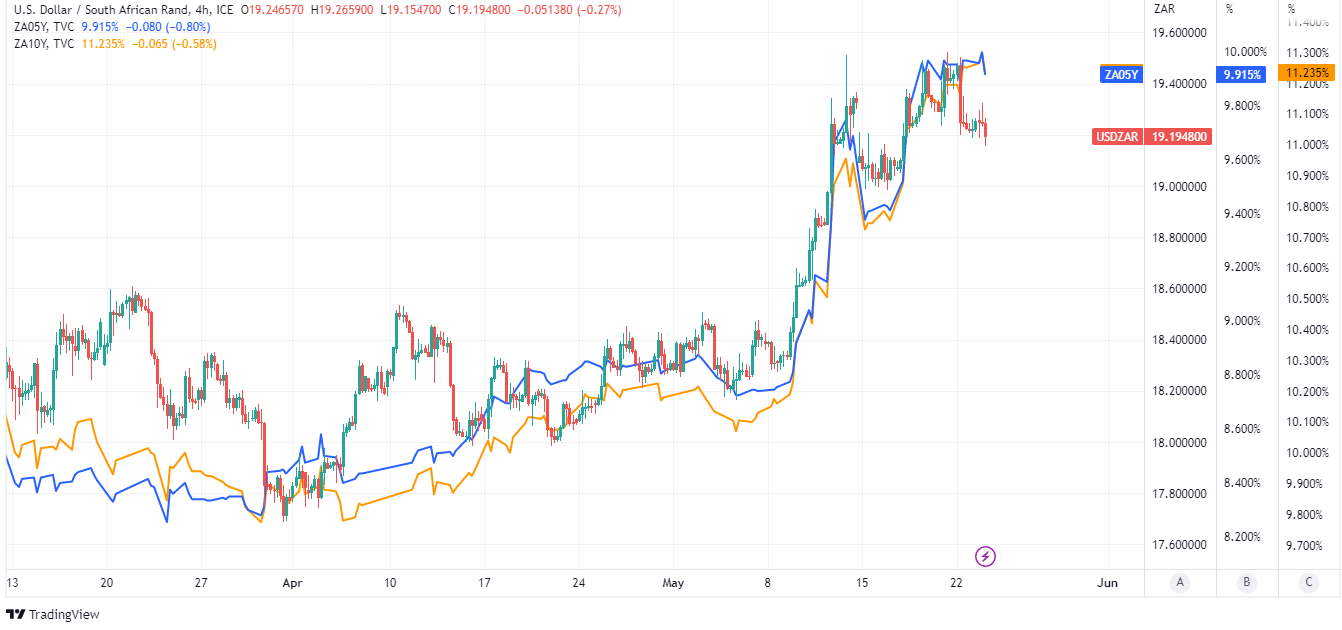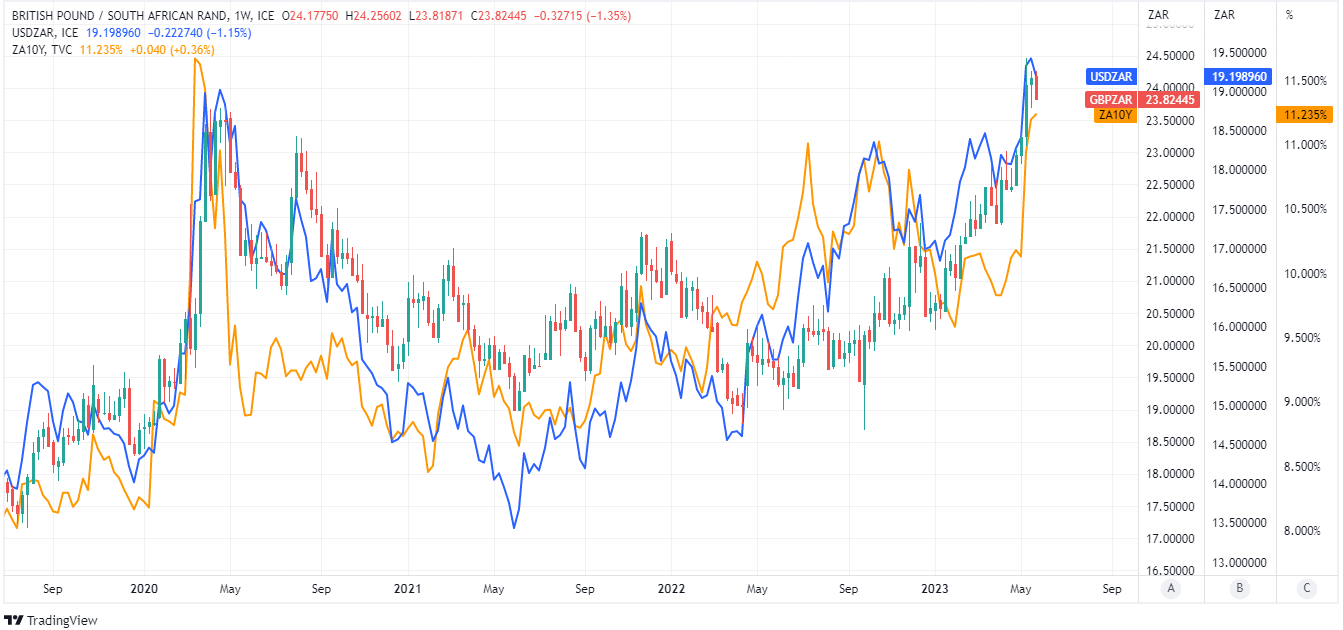Pound to South African Rand Rally Stalls and Risks Further Falls
- Written by: James Skinner
"We are hopeful for a slight easing in the numbers" - Sable International.

Image © Adobe Images
The Pound to Rand exchange rate has receded from seven-year highs and could unwind more of its recent rally if the South African Reserve Bank (SARB) succeeds in steadying its undervalued currency this Thursday but risks are finely balanced to the up and downside for GBP/ZAR.
South Africa's Rand shrugged off a fall in the SARB's leading indicator of the business cycle to outperform a vast majority of the G20 basket on Tuesday when it rose alongside the Japanese Yen, Russian Rouble and U.S. Dollar while pushing GBP/ZAR back below the 24.0 handle.
But the nascent rebound by the Rand comes after a weeks-long period of losses saw USD/ZAR rally to a new record high while lifting Sterling to some of its best levels since the 2015 market controversies over the inner workings of the administration led by Jacob Zuma.
"Following the FX depreciation of the past week, we are raising our rate forecast further and now expect a 50bp hike from the SARB to a 8.25% terminal policy rate (from +25bp to 8.00% previously)," says Bojosi Morule, a CEEMEA economist at Goldman Sachs.
"We see a risk that monetary tightening will weaken the economy further, thereby creating a feedback loop for the Rand," she adds.
 Above: Pound to Rand rate shown at daily intervals alongside USD/ZAR.
Above: Pound to Rand rate shown at daily intervals alongside USD/ZAR.
Goldman Sachs economists said last week that recent Rand losses have likely been driven by a mixture of local investors looking for more fruitful pastures further afield, and offshore market concerns relating to recent U.S. allegations of arms having been shipped from South Africa to Russia.
"Load shedding in Q2.23 and likely Q3.23 is expected to see economic activity worsen, and indeed the leading indicator readings show that the South African economy could see the business cycle slowdown materially," says Annabel Bishop, chief economist at Investec.
"Foreign investor sentiment towards SA remains very negative, with electricity outages worsening and no concrete progress yet in increasing power supply for this year. Markets also worry about recession in the US, the nearing fiscal cliff and disappointment over the weakness of China’s recovery," Bishop adds.
There is no shortage of domestic risks and international factors that could yet lead the Rand into fresh losses in the weeks or months ahead but local inflation data and a SARB interest rate decision could offer the currency further respite if they help to steady the local bond market.
The latter might be more likely if inflation or the interest rate decision come in on the low side of economist forecasts and market expectations, given the positive correlation between local government bond yields and exchange rates like GBP/ZAR and USD/ZAR.
 Above: USD/ZAR shown at 4-hour intervals alongside 05-year and 10-year South African government bond yields. Click image for closer inspection.
Above: USD/ZAR shown at 4-hour intervals alongside 05-year and 10-year South African government bond yields. Click image for closer inspection.
Analysts and economists have recently come to almost unanimously expect another half percent increase to lift the SARB cash rate to 8.25% on Thursday.
"We are hopeful for a slight easing in the numbers. However, if inflation shows an unexpected rise, it may force the SARB to adopt a more aggressive stance on rate hikes," says Sebastian Steyne, an FX risk and hedging specialist at Sable International.
"While the market has priced in an official 25 basis-point (bps) increase, there is widespread expectation that the SARB will opt for a more substantial 50 bps hike. Anything less than this projected increase is likely to result in weakness for the ZAR," Steyne writes in a Monday market commentary.
There are also risks stemming from the Sterling side of the GBP/ZAR equation, however, where attention will be on UK inflation figures due out just hours ahead of South Africa's on Wednesday and retail sales numbers out on Friday.
The inflation data is key if the Bank of England (BoE) Bank Rate rises in line with market expectations over the coming months but there is uncertainty about how it can be expected to impact Sterling.
 Above: GBP/ZAR at weekly intervals alongside USD/ZAR and 10-year SA government bond yield. Click image for closer inspection.
Above: GBP/ZAR at weekly intervals alongside USD/ZAR and 10-year SA government bond yield. Click image for closer inspection.




